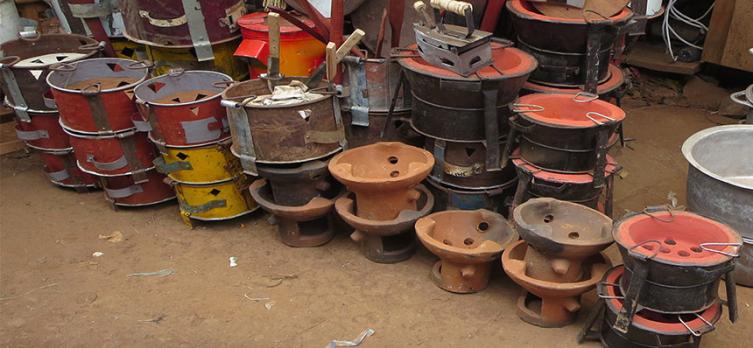Events

Venue: Washington, DC
 |
 |
 |
|
Taxes, including import duties and local value added tax (VAT), have been major obstacles to scaling up clean cooking markets in Africa. These taxes generate very limited fiscal revenue, while the lost economic, health, and environmental opportunities are significant. How big is the tax burden, and would it make sense to reduce that burden? This event will feature recent analytical work that provides a "league table" which ranks African countries by their tax burden put on stoves. It also presents a scenario showing how reduced tax burden can affect stove sales, generate government revenues, create local jobs, and provide environmental benefits in Africa.
Download Presentation |
Opening Remarks |
|
|
Speaker |
 Michael Tsan is a New York-based partner who co-leads Dalberg's global Energy Access practice. Michael serves as the director of the firm's ICT practice, and works extensively at the intersection of inclusive business models, government policy, and digital finance. He is an expert on distribution and access to finance models for off-grid renewable consumer lighting products, mini-grids, sustainable cooking fuels, and improved and clean stoves. Michael's work in the cooking sector includes serving as the lead author of the World Bank and Global Alliance for Clean Cookstoves (The Alliance) Global Landscape and Sub-Saharan Africa Cooking Landscape reports and helping develop national clean cooking roadmaps for countries such as China, India, Kenya, Honduras, Nicaragua, and Guatemala. Michael has also advised NGOs, social enterprises, multi-nationals, and impact investors in the clean cooking sector. Michael earned a J.D. from Yale Law School with a focus on International Law and Development Economics where he was an Olin Scholar in Law, Economics, and Public Policy. He also received a mini-MBA from Tuck Business School at Dartmouth, and a BA in Economics and History from Swarthmore College. Michael Tsan is a New York-based partner who co-leads Dalberg's global Energy Access practice. Michael serves as the director of the firm's ICT practice, and works extensively at the intersection of inclusive business models, government policy, and digital finance. He is an expert on distribution and access to finance models for off-grid renewable consumer lighting products, mini-grids, sustainable cooking fuels, and improved and clean stoves. Michael's work in the cooking sector includes serving as the lead author of the World Bank and Global Alliance for Clean Cookstoves (The Alliance) Global Landscape and Sub-Saharan Africa Cooking Landscape reports and helping develop national clean cooking roadmaps for countries such as China, India, Kenya, Honduras, Nicaragua, and Guatemala. Michael has also advised NGOs, social enterprises, multi-nationals, and impact investors in the clean cooking sector. Michael earned a J.D. from Yale Law School with a focus on International Law and Development Economics where he was an Olin Scholar in Law, Economics, and Public Policy. He also received a mini-MBA from Tuck Business School at Dartmouth, and a BA in Economics and History from Swarthmore College.
 Scott Strand is Senior Project Manager of Dalberg, San Francisco and works in Dalberg's ICT and Financial Inclusion practices in East Africa and Southeast Asia. He also led Dalberg's research and analysis for the World Bank's recently developed Clean Cooking Advocacy Toolkit. Scott focuses on spreading access to affordable, innovative technologies that improve quality of life for the bottom of the pyramid. He has managed over ten projects aimed at designing, applying, and scaling consumer technology solutions. Scott holds dual BAs in Psychology and History from Brown University, and an MA in Law and Diplomacy from the Fletcher School at Tufts University, where he taught a graduate course on emerging market banking and finance. Scott Strand is Senior Project Manager of Dalberg, San Francisco and works in Dalberg's ICT and Financial Inclusion practices in East Africa and Southeast Asia. He also led Dalberg's research and analysis for the World Bank's recently developed Clean Cooking Advocacy Toolkit. Scott focuses on spreading access to affordable, innovative technologies that improve quality of life for the bottom of the pyramid. He has managed over ten projects aimed at designing, applying, and scaling consumer technology solutions. Scott holds dual BAs in Psychology and History from Brown University, and an MA in Law and Diplomacy from the Fletcher School at Tufts University, where he taught a graduate course on emerging market banking and finance. |